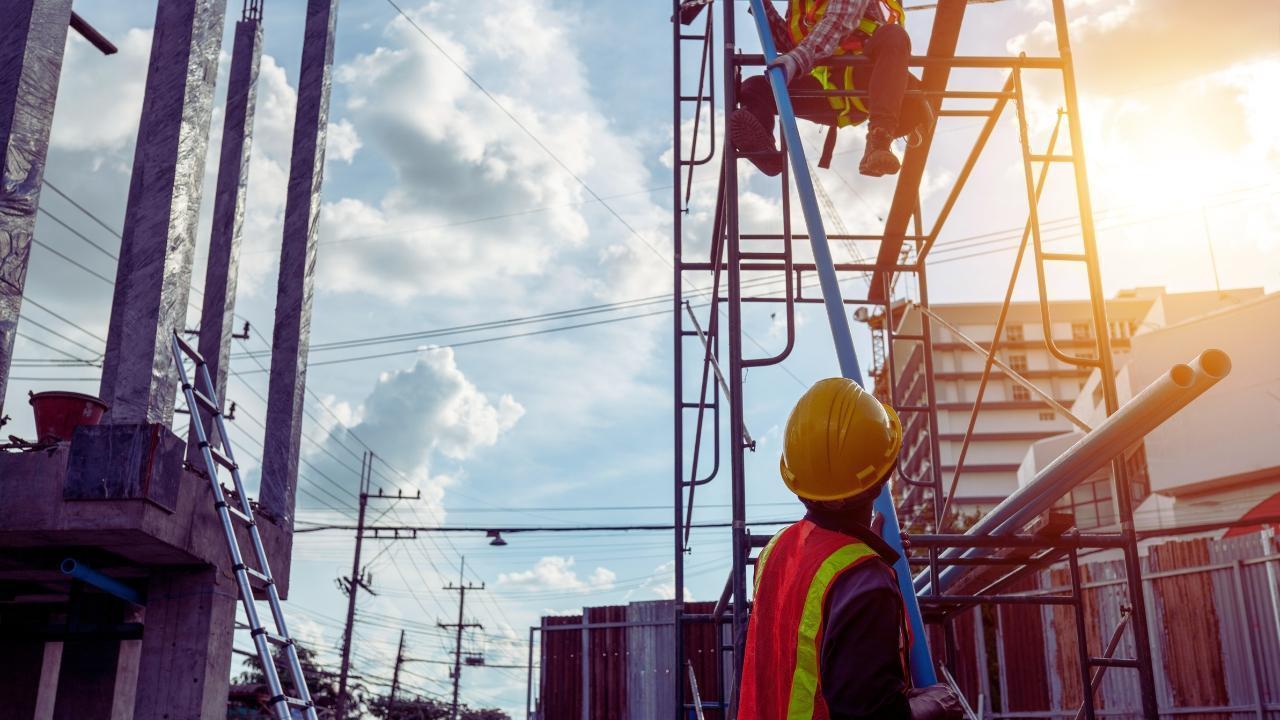You have not yet added any article to your bookmarks!

Join 10k+ people to get notified about new posts, news and tips.
Do not worry we don't spam!

Post by : Anis Farhan
For decades, the Middle East's influence in global affairs revolved around oil. But in 2025, another asset is taking center stage: infrastructure diplomacy. Led by Saudi Arabia, the UAE, and Qatar, Gulf states are exporting their infrastructure expertise — and megaproject capital — to reshape not just skylines, but geopolitical relationships.
From railways connecting Asia to Europe, to smart cities built in the desert, these projects are now tools of soft power, strategic influence, and economic diversification. It’s a transformation that reflects both ambition and pragmatism: as oil's dominance fades, concrete becomes currency.
At the forefront is Saudi Arabia’s Vision 2030, headlined by the $500 billion NEOM smart city project. Designed as a linear, car-free, AI-driven urban experiment, NEOM is more than a development — it’s a branding exercise, showcasing the Kingdom’s pivot from hydrocarbons to high-tech.
But NEOM’s influence extends beyond its borders. Saudi developers, consultants, and state-owned firms are now partnering with countries in Africa and Central Asia to replicate NEOM-style urban zones — exporting both their technical know-how and policy frameworks.
Saudi Arabia is also funding transport and energy infrastructure in Egypt, Pakistan, and East Africa — blending investment with diplomatic engagement in regions where Western influence has waned.
The United Arab Emirates has long seen itself as a connector — and in 2025, it's doubling down. Infrastructure is the centerpiece of this vision.
Key players like DP World, AD Ports Group, and Mubadala are building and financing:
Deepwater ports in Africa, South Asia, and the Black Sea
Industrial zones tied to UAE’s logistics networks
Digital infrastructure, including data centers and telecom cables
Perhaps most strategically, the UAE is backing the India–Middle East–Europe Economic Corridor (IMEC) — a multi-modal trade route that bypasses traditional Suez routes and rivals China’s Belt and Road.
Through IMEC and other projects, the UAE is embedding itself into global supply chains, enhancing both economic clout and diplomatic leverage.
Qatar has historically wielded influence through LNG diplomacy. But in 2025, it's adding infrastructure partnerships to its toolkit.
The state-owned Qatar Investment Authority (QIA) is funding:
Smart energy grids in Southeast Asia
Stadium and transit projects in Africa
Renewable hydrogen pipelines tied to its LNG terminals
Qatar’s approach is more targeted — using selective megaprojects to deepen bilateral ties with countries that offer long-term energy partnerships or strategic UN support.
Its infrastructure outreach complements its soft power playbook, which already includes media (Al Jazeera), global sports (via World Cup legacy), and education (through partnerships with U.S. universities).
This trend isn’t unique to the Gulf — but Gulf nations are executing it with precision. The model typically involves:
State-backed investment vehicles offering low-cost, long-term capital
Public-private execution, often involving sovereign wealth funds and listed firms
Tied contracts, where infrastructure spending aligns with political cooperation or trade deals
Soft power amplification, using projects to position Gulf states as modern, capable, and influential players
These megaprojects achieve multiple outcomes:
Access to strategic markets and natural resources
Political goodwill in multilateral forums
Opportunities to shape development norms in emerging economies
There are caveats. Gulf-led projects often face criticism for:
Labor standards and workforce treatment
Environmental concerns tied to scale and location
Debt diplomacy accusations, especially when host countries become financially over-leveraged
Western powers have begun to counterbalance Gulf and Chinese infrastructure outreach by promoting their own “clean infrastructure” initiatives — notably the Partnership for Global Infrastructure and Investment (PGII), backed by the G7.
But for many nations in Africa, South Asia, and the Caucasus, Gulf-backed projects come with fewer geopolitical strings and faster timelines.
Interestingly, Southeast Asia is now emerging as the next theater for Middle Eastern infrastructure diplomacy.
In 2025:
The UAE signed a deal with Indonesia to co-develop a digital-industrial park in Java
Saudi Arabia offered funding for Malaysia’s new rail electrification project under the ASEAN connectivity agenda
Qatar-backed firms are entering Thailand’s smart grid and EV charging sector
These partnerships are not just economic — they’re geopolitical signals, aligning the Gulf’s eastward pivot with ASEAN’s need for resilient infrastructure.
The Middle East’s megaproject diplomacy is reshaping global infrastructure narratives. In a multipolar world, hard power and trade alone are no longer sufficient — credibility now comes with cranes, cables, and container ports.
By leveraging their financial muscle, technical capacity, and geopolitical neutrality, Gulf nations are becoming indispensable partners in the global development equation.
The future of foreign policy, it turns out, may be built in concrete — and paved by backhoes, cranes, and sovereign wealth funds.
This article is intended for editorial and informational purposes only. It does not constitute investment advice or foreign policy guidance. Readers are encouraged to evaluate geopolitical and financial implications independently or with expert consultation.










Sri Lanka Ex-Intel Chief Arrested Over Easter Attacks
Former SIS Chief Suresh Sallay arrested by CID in connection with the 2019 Easter Sunday bombings th

Japan Reports Spike in Measles Cases Authorities Issue Alert
Japan confirms 43 measles cases in early 2026, prompting health authorities to warn potential contac

Korea US Clash Over West Sea Drill Communication
Conflicting accounts emerge on prior notice briefing, and apology during Feb 18-19 US air exercise i

Richard Liu launches $690M eco-yacht brand Sea Expandary
JD.com founder Richard Liu invests $690M in Sea Expandary aiming to produce affordable green yachts

China imposes export curbs on 40 Japanese firms over military ties
Beijing restricts dual-use exports to Japanese companies, citing remilitarization concerns, promptin

Malaysia moves to protect Musang King durian amid China impostors
Authorities safeguard Malaysia’s Musang King brand as durians from Thailand and Vietnam are being fa